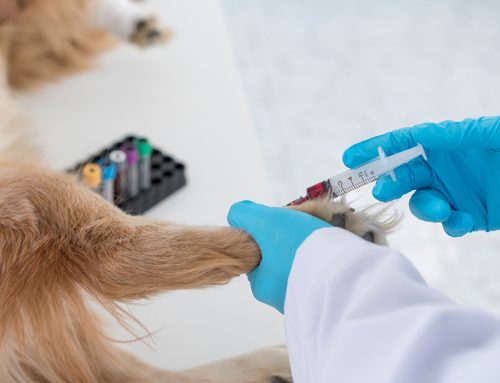Heart disease in pets is not easily predicted. Unlike in humans, the condition is not linked to pets who smoke, drink too much alcohol, or eat a fatty diet. Our team at Boca Midtowne Animal Hospital wants to educate you on heart disease and the conditions that can affect your pet.
Common heart diseases affecting dogs
While numerous issues can cause heart disease in dogs, three conditions are the most common.
- Degenerative valve disease — This condition typically affects small-breed dogs over age 8. The mitral valve separates the left upper heart chamber (i.e., atrium) from the left lower heart chamber (i.e., ventricle), and closes when the heart contracts. If the valve weakens, blood can leak back toward the left atrium. As the condition progresses, the left atrium enlarges, and fluid accumulates in the lungs.
- Heartworm disease — Although preventable, heartworm disease causes about 13% of heart disease in dogs. The larval parasites are transmitted through an infected mosquito’s bite, and the adult parasites can cause extensive damage to your dog’s heart and lungs.
- Heart muscle disease — Dilated cardiomyopathy is the most common heart muscle disease affecting dogs. Certain breeds, including boxers, Great Danes, Doberman pinschers, and cocker spaniels, are more susceptible. The heart muscles stretch and become thin, decreasing the heart’s ability to contract and adequately pump blood.
Initially, dogs affected by heart disease will likely not show any signs, but as the condition progresses, signs will include lethargy, exercise intolerance, breathing difficulty, and coughing. In later stages, when the heart can no longer pump adequate blood to the body, congestive heart failure will develop, and signs can include severe weight loss, distended abdomen, bluish tint to the gums and tongue, and collapse.
Common heart diseases affecting cats
Most heart disease in cats is caused by primary disease. Certain conditions, such as anemia, hyperthyroidism, and high blood pressure, can cause secondary heart disease. The three most common primary cardiomyopathies in cats are:
- Hypertrophic cardiomyopathy — The muscular heart wall thickens, reducing the heart’s ability to relax, pump, and fill appropriately. A hereditary link is suspected, and certain cat breeds, such as Maine Coon, Persian, Ragdoll, and American shorthair, are predisposed.
- Restrictive cardiomyopathy — Excessive scar tissue builds up on the inner ventricular lining, reducing the heart’s ability to relax, fill, and empty adequately. Geriatric cats are most commonly affected by this disorder.
- Dilated cardiomyopathy — The left ventricle becomes enlarged, and the wall becomes thin and weak, reducing the heart’s ability to pump blood from the heart.
In the early stages, most cats suffering from heart disease will show no signs. As the condition progresses, signs can include lethargy, vomiting, and decreased appetite. In later stages, when the cat is in congestive heart failure, they will have difficulty breathing, and may be unable to move their hind legs. Sudden paralysis may occur when a blood clot forms in the malfunctioning heart and lodges in the artery that supplies blood to the hind limbs.
Regular wellness exams are imperative for heart disease diagnosis in pets
Since pets do not initially show signs when affected by heart disease, regular wellness visits are the only way to catch these conditions in the early stages. By bringing your pet in for regular wellness checks at Boca Midtowne Animal Hospital’s Fear Free and American Animal Hospital Association-accredited veterinary practice, a qualified veterinary professional will be able to carefully listen to your pet’s heart and determine if a problem exists. Early warning signs that may be detected include:
- Heart murmur — An abnormal noise is created by turbulence as blood flows through the heart.
- Gallop rhythm — Typically, two heart sounds are detected through a stethoscope, but three heart sounds may be heard when significant heart disease is present.
- Abnormal heart rate — Heart rate may be abnormally increased or decreased if a pet is affected by heart disease.
- Cardiac arrhythmias — Heart disease can cause the heart to beat in an abnormal or irregular rhythm.
If an abnormality is found during the physical examination, other diagnostics may be performed, including an electrocardiogram, X-rays, ultrasounding the heart, and tests for underlying diseases.
Treating and preventing heart disease in pets

If an underlying cause such as heartworm disease exists, treatment is started to counteract the condition. Unfortunately, no cure exists for congestive heart failure, but medications are available to help the heart work more efficiently. Our dedicated veterinary professionals at Boca Midtowne Animal Hospital will develop a treatment protocol tailored to your pet affected by heart disease.
Diet and exercise are important to help prevent diseases that can cause secondary cardiac disease, but they do not prevent primary cardiac disease processes. Heartworm disease can be prevented by keeping your pet on a year-round heartworm preventive, but no prevention methods are available for the other heart diseases, making wellness checks to catch early disease imperative.
Heart disease is a concerning condition that can be a silent killer if not caught early during disease progression. If you are concerned your pet may be affected by heart disease, or if you would like to schedule a wellness check for your pet, contact our team at Boca Midtowne Animal Hospital for an appointment.








Leave A Comment